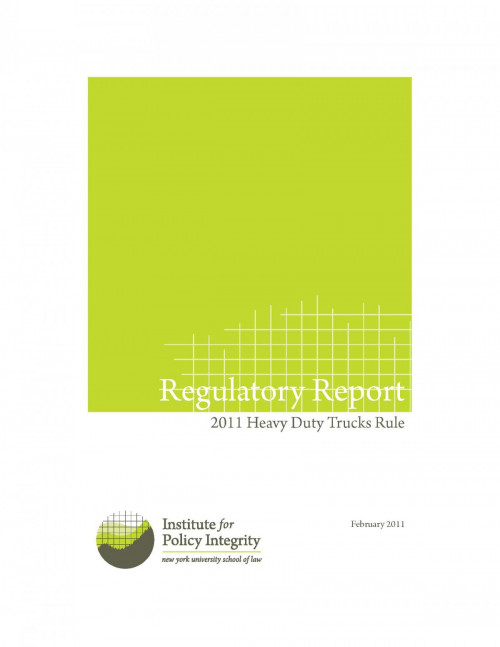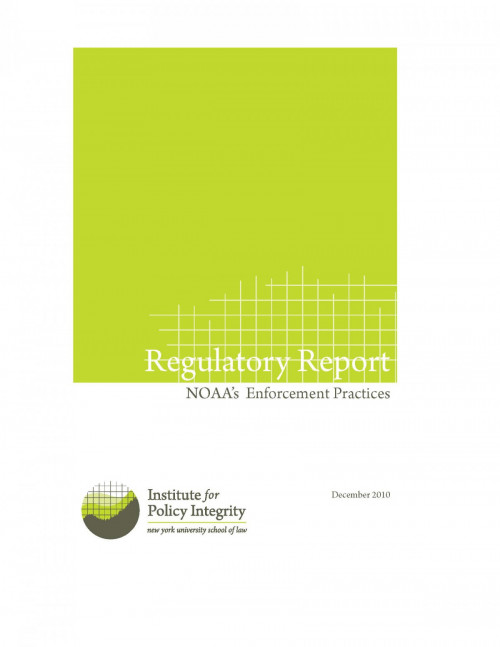-
EPA Releases Second Prospective Study on Clean Air Act
The EPA released the third report in its series of cost-benefit analyses of the Clean Air Act today. Titled the Second Prospective Study, this report focuses on the effects of programs implemented after the 1990 amendments to the act.
-
Jason Schwartz gives testimony on NYC heating oil rule
Today, the city is conducting hearings on a regulation that the Bloomberg administration released last month to address the soot pollution from residual oil.
-
Physician’s Conscience Rule Recinded
Today, the Obama administration rescinded the 2008 Bush-era physician conscience rule, which extended protections to health care providers who refused to provide certain services due to moral or religious objections.
-

2011 Heavy-Duty Trucks Rule
EPA and NHTSA have taken a crucial step in addressing our greenhouse gas emissions and oil dependency by regulating the fuel efficiency of heavy-duty trucks for the first time. But, there is room for improvement.
-
Value of Mortality Risk
Policy Integrity recently submitted comments to the EPA on their “Valuing Mortality Risk Reductions For Environmental Policy” white paper, which focuses on topics related to the EPA’s practices regarding the valuation of mortality risks.
-
Courts order EPA to proceed with boiler rule
Yesterday, the courts denied EPA’s request to delay on rules that would restrict certain types of air pollution from industrial boilers. We think the message is clear: after two decades of work on this issue, the time for analysis is over.
-
Obama on regulatory review
Today, President Obama penned an op-ed for the Wall Street Journal demonstrating his commitment to the health and safety of the American public but also to protecting those things in ways that make economic sense.
-
Public Comments on Head Start
Today, Policy Integrity submitted public comments on proposed regulations triggered by recent amendments to the Head Start Act. The revisions are aimed at maximizing the federal program’s impact.
-

NOAA’s Enforcement Practices
This regulatory report recommends more economically effective fines that would increase the protection of our nation’s ocean life. It comes in response to a possible shift in NOAA’s policies that could risk a rise in over-fishing. The suggestion is properly calibrated fees combined with more rigorous enforcement that, together, will serve to efficiently deter harm to marine life.
-
Letter to OIRA: Coordinate on Green Labels
Several federal agencies are in the process of issuing or updating a spate of environmental labels for consumer products: cars, tires, appliances, and now, recent Federal Trade Commission proposals will affect the labeling on lots of other everyday items.
